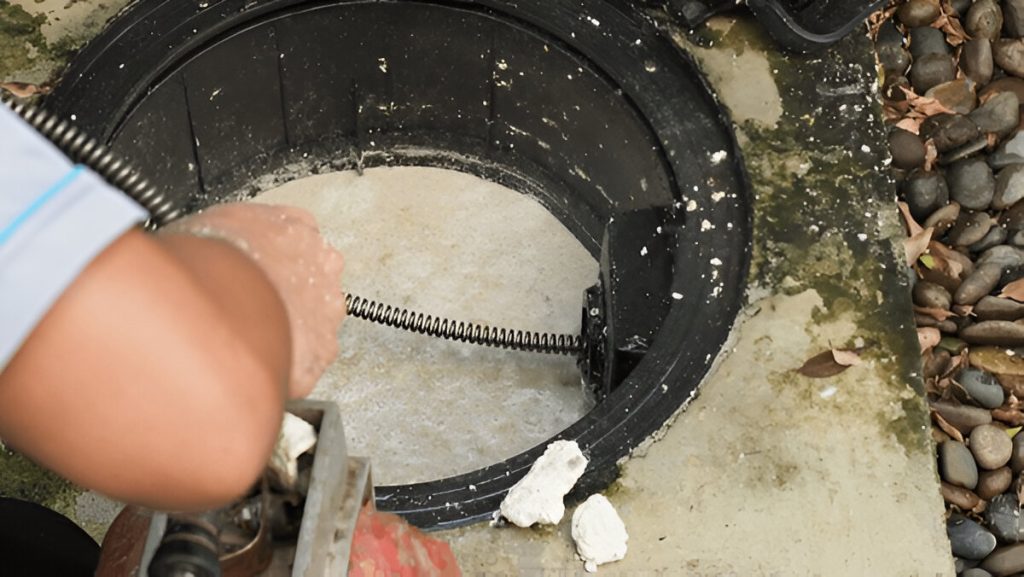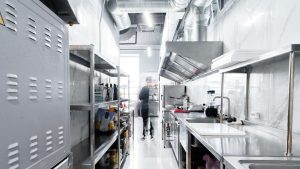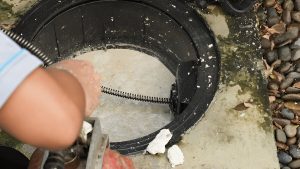Kitchen fires pose a serious threat to commercial establishments, with grease buildup being a primary culprit. Professional grease trap cleaning plays a vital role in maintaining kitchen safety and preventing potentially devastating fires that can destroy businesses and endanger lives.
Regular grease trap maintenance removes hazardous accumulations that could ignite and spread rapidly through kitchen ventilation systems. When grease traps become clogged or overflow, they create dangerous conditions where flammable materials can collect in hoods, ducts, and other hard-to-reach areas of the kitchen.
The combination of proper grease trap cleaning and hood maintenance creates a comprehensive fire prevention system for commercial kitchens. Professional cleaning services ensure compliance with fire safety regulations while protecting valuable equipment and property from damage.
Key Takeaways
- Professional grease trap cleaning directly reduces fire risks in commercial kitchens
- Regular maintenance prevents dangerous grease accumulation in ventilation systems
- Proper cleaning ensures compliance with safety regulations while protecting kitchen equipment
The Critical Role of Grease Trap Cleaning in Fire Prevention
Regular grease trap cleaning directly impacts kitchen fire safety by managing flammable substances and maintaining proper ventilation systems. Clean grease traps create multiple layers of protection against fire hazards in commercial kitchens.
How Grease Buildup Increases Fire Risk
Accumulated grease creates a highly flammable environment in kitchen spaces. When grease deposits collect in traps and ventilation systems, they become potential fuel sources for fires.
A single spark or excessive heat can ignite trapped grease particles, leading to rapid fire spread through ductwork.
Professional cleaning removes these dangerous accumulations before they reach critical levels. The recommended cleaning frequency depends on kitchen size and cooking volume, ranging from monthly to quarterly service.
Connection Between Grease Traps and Ventilation Safety
Clean grease traps support proper airflow throughout kitchen ventilation systems. Blocked or dirty traps force exhaust systems to work harder, creating potential mechanical failures.
Grease buildup in ventilation ducts restricts air movement and creates hot spots near cooking areas. These conditions increase the risk of flash fires and system malfunctions.
Regular maintenance ensures smooth airflow and reduces strain on ventilation equipment. Professional cleaners use specialized tools to clear both traps and connected ductwork.
Fire Code Compliance and Grease Management
Local fire codes mandate specific grease trap cleaning schedules based on kitchen size and usage. Inspections focus on grease accumulation levels and system maintenance records.
Non-compliance can result in fines, closure orders, or insurance coverage issues. Documentation of regular cleaning helps businesses meet safety requirements.
Fire marshals check grease trap maintenance during routine inspections. They measure grease depth and assess cleaning frequency adequacy.
Key cleaning requirements:
- Maximum allowed grease accumulation: 1/4 inch
- Professional cleaning documentation
- Maintenance log accessibility
- Regular system inspections
Effective Grease Trap Maintenance Strategies
Regular grease trap maintenance and professional cleaning services form the foundation of fire prevention in commercial kitchens. A well-maintained system protects both staff and property while ensuring compliance with safety regulations.
Best Practices for Safe Kitchen Operations
Schedule weekly inspections to check grease levels and trap conditions. Document each inspection in a maintenance log to track patterns and identify potential issues early.
Install grease monitoring devices to measure accumulation rates accurately. These tools provide real-time data for optimizing cleaning schedules.
Essential Maintenance Tasks:
- Clean grease trap screens daily
- Remove solid waste buildup weekly
- Check automatic grease removal units monthly
- Test safety shut-off mechanisms quarterly
Implement a strict protocol for grease disposal. Use approved containers and maintain detailed disposal records for compliance purposes.
Choosing Professional Services Like Hood Safe LLC
Select certified technicians with experience in commercial kitchen systems. Professional services should provide detailed inspection reports and maintenance documentation.
Key Service Requirements:
- NFPA-certified technicians
- 24/7 emergency response capabilities
- Comprehensive system inspection
- Written maintenance reports
Establish a regular service schedule based on kitchen volume and equipment usage. Monthly or quarterly professional cleanings are typical for most commercial operations.
Partner with services that offer preventive maintenance programs. These programs help identify potential issues before they become safety hazards.



